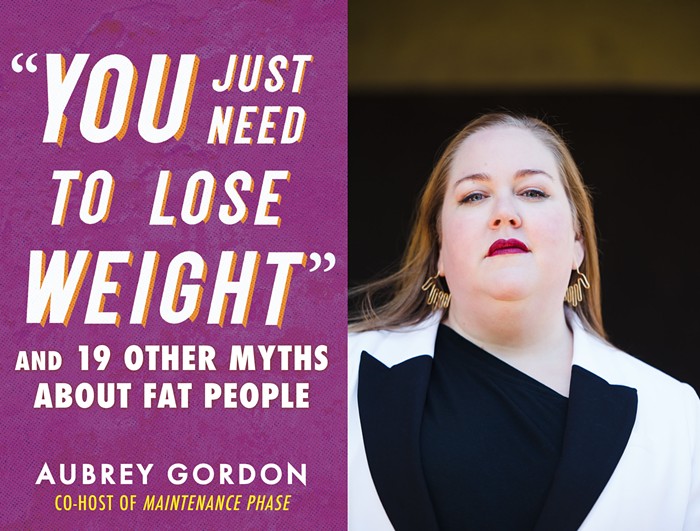
God sends the four horsemen of the Apocalypse on a team building retreat aboard a cruise. An ex-Nazi works as the muscle for a revivalist cult on the road. A chain smoking tooth fairy wonders what to do when she witnesses child abuse. These quandaries propel the pages of Folk Songs for Trauma Surgeons, the recently published first short story collection by Portland novelist Keith Rosson. Equal parts haunted, hilarious, and deeply human, Rosson’s stories straddle genres while maintaining a distinctive, jagged voice. That’s apparent in this excerpt from the story “Their Souls Climb the Room”:
“He was a felon, Nolan, and had gotten the job at Good Acres Foods the year before because the sticker before him had lost a thumb from a hog kicking the blade back against his hand. Good Acres was about the only place in the county that’d hire anyone with a record, and Nolan made twelve dollars an hour killing roughly five thousand animals a shift, five shifts a week. At night he could feel the souls of all the dead hogs pressing on his chest, pressing down on his ribcage like something real.”
The Mercury caught up with Rosson about plagues, magical realism, Lakota literature, composing “garbage-ass” first drafts, and trying to write in a pandemic with toddlers running around the house. Our conversation has been edited for brevity.
MERCURY: Hi Keith! What are you reading these days?
ROSSON: Hey! Right now I’m tackling David Heska Wanbli Weiden’s Winter Counts, a crime novel written by a Sicangu Lakota guy that primarily takes place on the Rosebud Reservation in South Dakota, and Kevin Barry’s recent story collection, That Old Country Music. Nice mix of genre and literary stuff.
You recently taught a course on magical realism. How’d that go? Do you consider these stories to be magical realism?
It’s always fun, and the folks taking the classes always bring something new and unforeseen to the table. As far as [my new collection] Folk Songs goes, it’s across the board genre-wise. Magical realism, crime, literary, speculative, all of it. But I’m hoping the tone and style and overarching themes kind of tie everything together into something cohesive and moving. (And, you know, fun to read.)
Speaking of Folk Songs, in “The Lesser Horsemen” (perhaps the collection’s flagship story), you posit Pestilence as the least relevant of the four horsemen. How did it feel having this story come out amidst the first pandemic in centuries, marking Pestilence’s comeback?
It’s definitely the story that gets talked about the most. I wrote it six years ago, and had no clue about what the future would hold, personally, globally or otherwise. I do think it’s a pretty fascinating example of readers finding connections to your work where they might not always be overtly intentional. I obviously didn’t write it with COVID in mind, but I can certainly see correlations now. Just one of the cool things about stories, and literature in general.
You have a way with clever turns of phrase doubling as vivid, unexpected descriptors. In “Dunsmuir,” for example, you describe a backwoods, girlfriend-murdering meth-head as “feral, a snake hit with a shovel but not quite dead.” Do you spend a lot of time crafting these, carrying around a dictionary like the narrator in “Coyote,” or do they just appear to you?
I am a firm believer in writing a garbage-ass first draft. A lot of newer writers insist that the first five or ten pages of something has to be perfect before they can move forward, and they’ll spend eternity working on that first section, never finishing anything. I’m way more interested in writing a terrible first draft and palpating that mofo into something workable after the fact... I probably do six or seven complete drafts of a story before I feel like it’s done, and the first draft is a mess, always.
Your writing explores themes of addiction, self-loathing, powerlessness, regret, and brutality. What motivates you to write gritty stories?
For one, I like to read gritty stuff. It interests me as a reader. And as a writer, I want to write about those big, overarching ideas you just mentioned—as well as notions of family, indebtedness, faith, redemption—and the vehicles to tackle those ideas are often a bunch of gritty, hard luck characters. I admire writers who can pen a moving story that addresses those concerns while setting it at, like, a tennis match or a family barbecue or something supposedly pedestrian. But I just don’t write like that, you know? I need the ghosts and the monsters and the alcoholics and rageful fathers and stuff.
You regularly bring the reader around to empathy in the end. What’s your take on the role of humor, irony and snark in literature, versus sincerity and compassion? Is it important for characters seeking redemption to find it?
Yes, absolutely. Redemption is possible and meaningful and attainable. It’s one of my key points as a writer, and a strident belief as a person. I also think that writers can toe that line between hilarity and compassion. But probably not in the first draft.
Are you working on another novel? What’s the writing process been like under pandemic conditions?
I have a couple projects that I’m tapping away at, but one of the results of a year-plus of pandemic-living with toddlers is a distinct and profound lack of focus. Like, the amount of sustained concentration needed to write a novel, at least for me, just isn’t there right now. So there’s no big project that’s taking precedence. [I’m] definitely enjoying writing short stories and sending them out; after four books in five years, it’s nice to just take things a little slow and piecemeal.
Keith Rosson is the author of the novels Road Seven, Smoke City, and The Mercy of the Tide. He also started the zine AVOW in 1995. His latest book, Folk Songs for Trauma Surgeons, was published earlier this year by Meerkat Press. You can buy it at Powell’s.


















